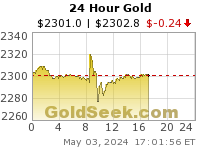By Elliott Wave International
Elliott wave analysis can warn you of trend changes when the rest of the investment public least expects a market reversal. With that in mind, we have created a new report for our free Club EWI members: "The Next Major Disaster Developing for Bond Holders."In this free report, you get some of the latest commentary on fixed-income markets adapted from various Elliott Wave International's publications, including 2010 issues of Robert Prechter's monthly Elliott Wave Theorist and its sister publication, The Elliott Wave Financial Forecast.
Enjoy this excerpt -- and for details on how to read this important Club EWI report free, today, look below.
The Next Major Disaster Developing for Bond Holders
(excerpt)
The Elliott Wave Theorist -- October 2010
(By Robert Prechter, EWI president)
...History shows that investors have been attracted like moths to a flame to four consecutive pyres: the NASDAQ in 2000, real estate in 2006, the blue chips in 2007 and commodities in 2008. Now they are flitting across the veranda to a mesmerizing blue flame: high yield bonds. Bonds pay high yields when the issuers are in deep trouble and cannot otherwise attract investment capital. The public is chasing a large return on capital without considering return of it. ...
The Elliott Wave Financial Forecast -- October 2010
(By Steve Hochberg and Pete Kendall)
The rise in optimism since early 2009 has allowed corporations to issue the lowest grade debt at a record rate, even more than in the middle of the incredible expanding debt bubble of the mid-2000s. The annual total of $189.9 billion to date is a record, and the entire fourth quarter still lies ahead.
This is a stunning testimony to just how desperate investors are for the returns they grew so accustomed to during the old bull market. The Moody’s BAA-to-Treasury spread (see chart in the free report -- Ed.) has been widening since [April] and has made a series of lower highs in August and again in September. This behavior reveals an emerging preference for perceived safer debt even as junk bond issuance races higher. It is a critical non-confirmation...
Read the rest of this important report online now, free! Here's what else you'll learn:
- How Investors Are Looking Past Red Flags in Muni Market
- What You Should Know About Today's "High-Grade" Bonds
- The Answer To Bond Selection
- MORE



No comments:
Post a Comment